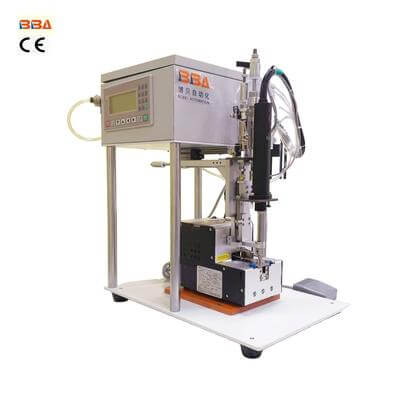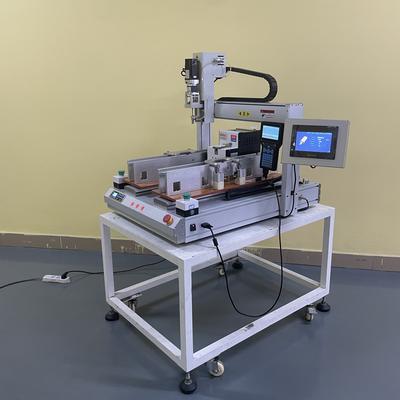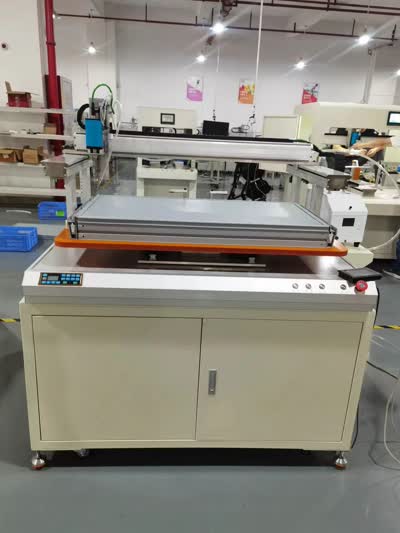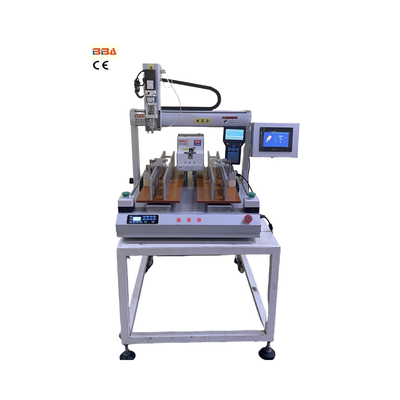Auto Screw Feeding in Industry 4.0 - Smart Manufacturing Solutions
| Product Name | Applicable industries |
| Smart Screw Driving Machine | Consumer Electronics Assembly |

The Role of Auto Screw Feeding in Industry 4.0
The advent of Industry 4.0 has revolutionized manufacturing processes, introducing smart automation and data-driven decision-making. Among the many innovations transforming production lines, auto screw feeding systems play a pivotal role in enhancing efficiency, precision, and productivity. These systems are integral to modern manufacturing, ensuring seamless assembly operations while minimizing human intervention.
Auto screw feeding systems are designed to automate the delivery and driving of screws, eliminating the need for manual handling. This not only speeds up the assembly process but also reduces the risk of errors and inconsistencies. In the context of Industry 4.0, these systems are equipped with advanced sensors and connectivity features, enabling real-time monitoring and adjustments. By integrating with IoT (Internet of Things) platforms, auto screw feeders can communicate with other machinery, optimizing the entire production workflow.
One of the key benefits of auto screw feeding in Industry 4.0 is its contribution to lean manufacturing. By automating repetitive tasks, manufacturers can significantly reduce waste, lower labor costs, and improve overall product quality. The precision of these systems ensures that each screw is placed and tightened to the exact specifications, reducing the likelihood of defects or rework. Furthermore, the data collected by these systems can be analyzed to identify trends, predict maintenance needs, and further refine processes.
Another critical aspect is the adaptability of auto screw feeding systems. In a dynamic manufacturing environment, the ability to quickly switch between different screw sizes and types is essential. Modern auto screw feeders are designed with flexibility in mind, allowing for easy reconfiguration to accommodate varying production requirements. This adaptability aligns perfectly with the principles of Industry 4.0, where customization and agility are paramount.
Safety is also a significant advantage of auto screw feeding systems. Manual screw driving can lead to repetitive strain injuries or accidents, especially in high-volume production settings. By automating this task, manufacturers can create a safer workplace, reducing the risk of injuries and enhancing employee well-being. Additionally, the consistency of automated systems ensures that screws are driven with the correct torque, preventing over-tightening or under-tightening, which could compromise product integrity.
As Industry 4.0 continues to evolve, the role of auto screw feeding systems will become even more critical. The integration of artificial intelligence (AI) and machine learning (ML) technologies promises to further enhance the capabilities of these systems. For instance, AI-powered screw feeders could learn from past operations, continuously improving their performance and adapting to new challenges. This level of intelligence will enable manufacturers to achieve unprecedented levels of efficiency and precision.
In conclusion, auto screw feeding systems are a cornerstone of Industry 4.0, driving innovation and efficiency in modern manufacturing. By automating screw delivery and driving, these systems reduce errors, enhance safety, and optimize production processes. As technology advances, their role will only grow, solidifying their position as an indispensable tool in the smart factories of the future.


